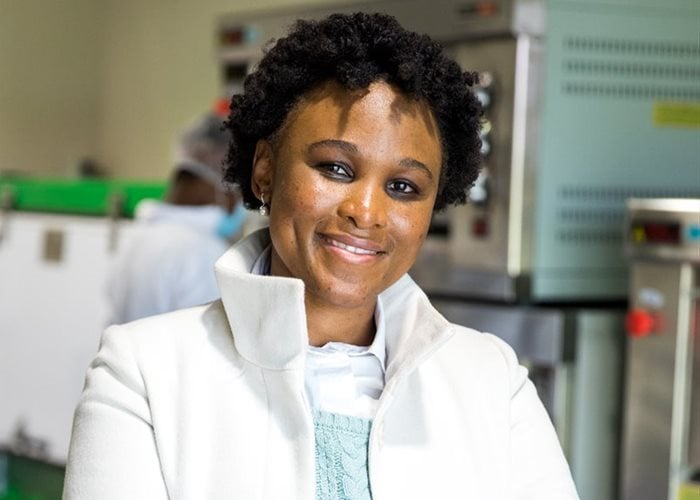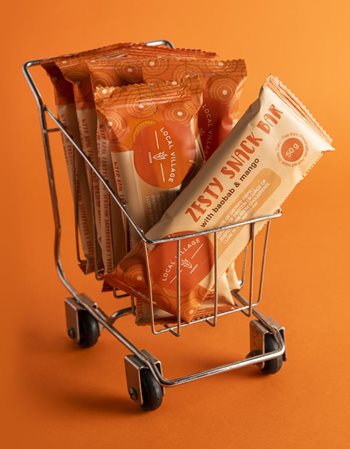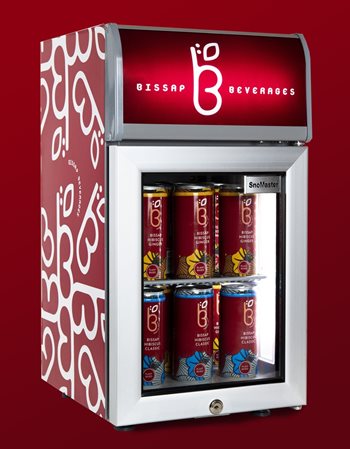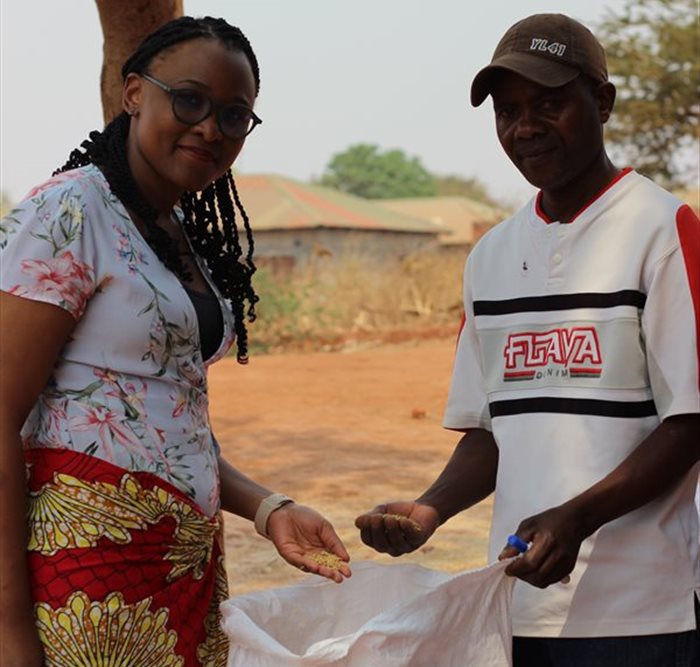






With the tagline 'Food is our Currency of Connection', Manqele sees food as a great unifier. Her business, Local Village Foods, seeks to celebrate indigenous African foods beyond just Heritage Day, and create market opportunities for the local communities, cooperatives and small-scale farmers that Local Village works closely with across the continent.
Manqele built Local Village Foods with a vision to create a network of vibrant, local African agripreneurs supplying equitably-sourced and sustainably-grown indigenous African superfoods - from teff grain from the Horn of Africa to tiger nuts from West Africa and the Southern African staple sorghum flour.

Based in Gauteng, Local Village Foods processes, packages and distributes the products to retailers and hospitality businesses. Through its proudly African products and packaging, the company is helping to popularise African ingredients and flavours, which remain under-represented in mainstream retail.
From Bambara groundnuts, fonio grain, teff flour and dried roselle leaves, to its more recent bissap-based beverages and baobab & mango snack bars, Local Village Foods is doing the work to make African wholefoods and ingredients more accessible to a global market - driving sustainable development along the way.


Here, Manqele shares her inspiration behind the business and the journey so far.
I come from a rural town endowed with natural resources, yet it’s not prosperous, and I discovered this was not unique to my hometown but many rural communities in Africa. My objective for Local Village Foods was to use entrepreneurship as a vehicle for sustainable development.
My university studies inspired me to think about sustainable development, and my interaction and deep connection with friends who were from other African regions challenged me to want to use indigenous foods as a vehicle to do that.

• African Foods are not easily available on the shelves, especially in mainstream retail.
• Farmers have not been incentivised to grow indigenous crops – this would assist with making them more affordable and accessible at markets.
• We have not invested in education/awareness, especially at a mass scale, on the benefits and how to incorporate the foods in our day-to-day diets.
• Big food manufactures have not been deliberate to incorporate the ingredients in food production.
• In South Africa we have reduced African flavours to just a feature on Heritage day and not in our day to day diets.
We have invested quite a lot in R&D so that customers can enjoy these beautiful ingredients more conveniently. We started off with just commodities and now we are adding more value.
Our vision is to be able to make a meaningful economic impact in various rural communities in Africa. We will achieve this by ensuring that small-scale farmers have access to markets through Local Village Foods.
We source from various suppliers ranging from co-operatives, NPOs, directly from smallholder farmers and importers who work with smallholder farmers.

As just two examples, we work with The Village Market in SA for honey; they make a social impact through beekeeping. We also work with a co-operative in Tanzania that empowers women smallholder farmers in Dodoma.
The food industry is highly regulated and requires capital to comply with the regulation, which is not easily available in SA. We have however managed to partner with various stakeholders who have supported us greatly along this journey.
Another challenge is the highly competitive FMCG market which makes it very difficult for new entrants with limited capital; this has provided us an opportunity to work on our positioning and differentiation in the market.
Having launched our beverage brand Bissap Beverages, but most importantly staying the course when the journey has been unbearable.
This is a hard one for us and at times for big brands too. Quick wins would be starting at farmers' markets if you have limited capital. This would be at a small scale but it helps you build a customer base and get feedback on your products without having to pay for the research.
From there you work your way to independent stores and online stores that will give you a national reach. This is definitely a journey for us as we are looking for big retail partners who will enable us to make African wholefoods easily available to many South African households.
Our vision is to be the preferred pan-African food producer. We plan on achieving this by creating delicious and healthy food products using African wholefoods and ensuring we run a sustainable enterprise by using the triple bottom line framework.
